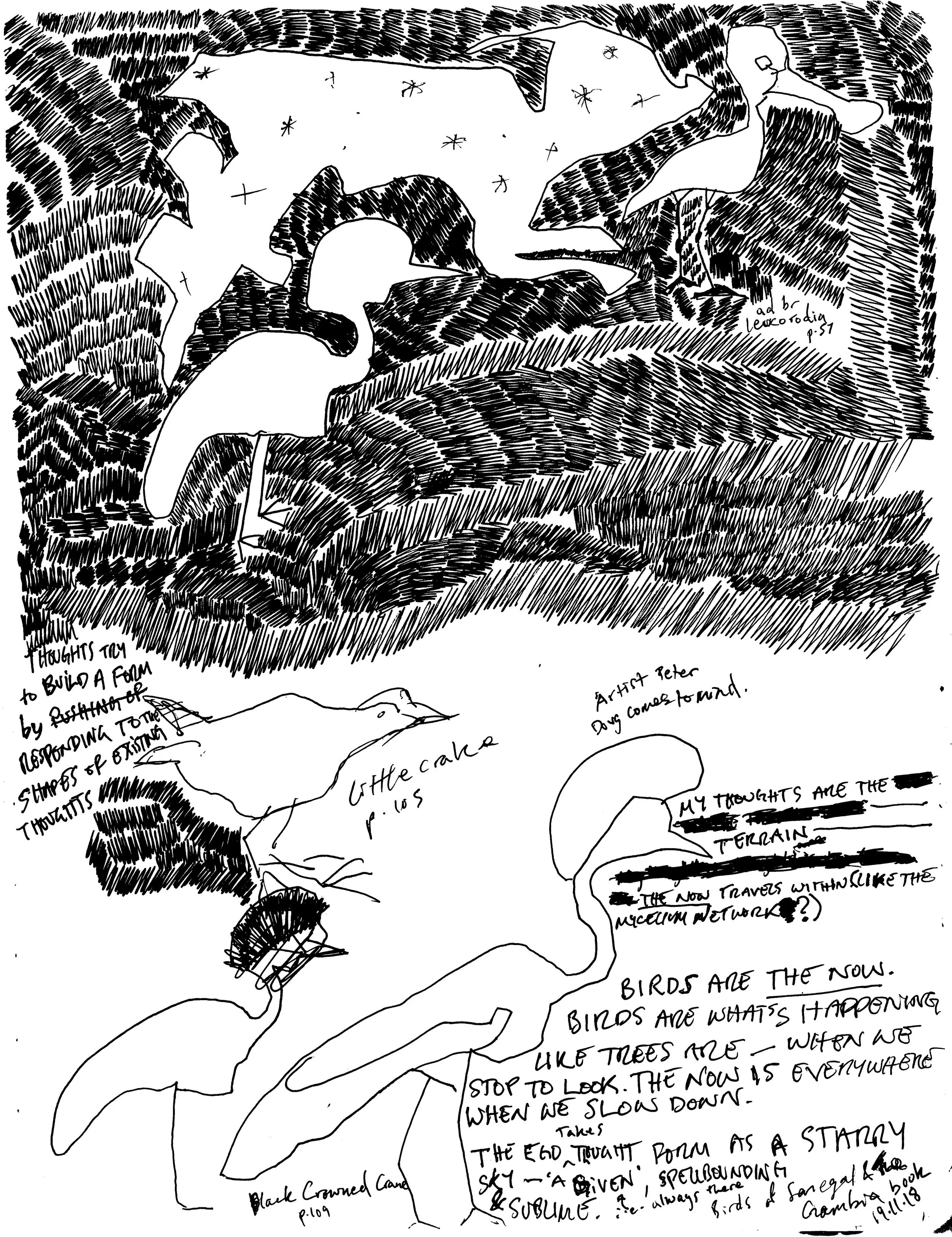Draw like Murakami, paint like Zweig
Here we see throwbacks to the influence of Aboriginal dream painting and those by Tal Mazliach.
The year also saw my work shaped by the writing of Haruki Murakami and Stefan Zweig, as well as the birds of Senegal and The Gambia. Another influence came from an art philosophy by meditation master and artist called Chögyam Trunpga, name Dharma Art. It’s focus is patience, perseverance, efficiency, simplcity, rhythm, harmony and awareness.
Together a metamorphosis from 2015’s mantra “capture fast, texture objects, fragments moments” began to take place, leading to a more mature consideration of structure and expression. A new period begins.
Draw like Murakami, paint like Zweig.
Imaginery Mindscapes
In 2014 my appetite for reading fiction accelerated to 2-3 books per month. Between 2015 and 2016, 3-4 per month. A job change to something challenging at the beginning of 2016 saw fiction swapped for non-fiction. Overcame the challenge, settled in and by 2017 the imaginary mindscapes of fiction returned.
Reading Haruki Murakami here and there starting with Norwegian Wood in 2014, I finished 2017 with 1Q84, the protagonist seeing puzzling discrepancies in the world around her. In 2018 I read several more including The Wind Up Bird Chronicle, the Kafkaesque Hard-Boiled Wonderland and the End of the World and Kafka on the Shore “incroporating themes of music as a communicative conduit, metaphysics, dreams, fate, and the subconscious”. I’ve read many Murakami’s. There's a structure to sentence to construction, flow, thematic episodes; beautiful each time everytime, graceful.
During ‘17 to ‘19 I fell upon a 1930s authour plagued by feelings of loneliness and disillusionment because of the state of Europe. He and his wife were exiled from their home by the Nazis. The author is Stefan Zweig.
Is there anyone else who writes like Zweig? He's able to invoke a beauty in the direst of stories like he's “Wes Andersoning” Fyodor Dostoevsky's writing. I made sense to learn later 1939s novel Beware of Pity inspired Wes Anderson's Austro-Hungarian Empire nostalgically themed, The Grand Budapest Hotel. Anderson has stated he takes his inspiration for all his movies from Zweig’s writing and in my opinion he succeeds. (Beware of Pity is the only novella he wrote, it's a good entrance to Zweig).




